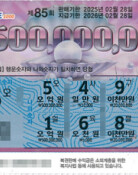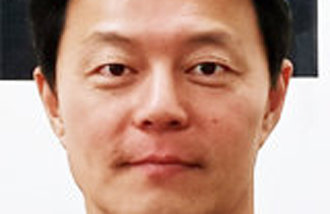Rough sailing expected in Korean-Japanese relations
Rough sailing expected in Korean-Japanese relations
Posted April. 25, 2001 11:41,
Junichiro Koizumi, who was elected president of the Japan`s ruling Liberal Democratic Party (LDP) Tuesday and will take office as the new prime minister Thursday, is called a ``directly elected prime minister`` or a ``presidential prime minister,`` as he was elected by overwhelming support of party members. Depending on the judgment of the Japanese leader, Korean-Japanese relations are expected to undergo many changes, but a general analysis is that they will be more difficult than before. There are three reasons: Koizumi does not know Korea well, he cannot afford to pay attention to Korea due to Japanese political schedules, and his personal propensity runs counter to the interests of Korea in many aspects. :—-Ed.
Koizumi is a rare politician, who rose to prime minister without serving the key posts of the LDP such as secretary general and chief policy maker. He also had not served as finance minister or foreign minister, dubbed essential cabinet posts before premiership. He was tapped as welfare minister twice and minister of postal affairs. His career shows that he had no chance to perform jobs with foreign countries both in the party and in the government.
No diplomatic career at all:
He never has been to Korea. He even bolted from the Korea-Japan Parliamentary League last year, although he was a member until 1999. Korea does not know of him, too, and there are few Korean politicians who are familiar with him. In Korean-Japanese relations, a friendship between political big shots played a decisive role in the past. But such a practice is not expected now. Koizumi is too busy to be concerned about Korea, particularly in light of the Japanese political schedules in the days to come.
What he has to overcome first is the election of the upper house scheduled for the end of July. If the LDP loses, he might be forced to resign as prime minister. In 1998, then-Prime Minister Ryutaro Hashimoto resigned due to the LDP`s defeat in the upper-house election.
There is almost no possibility for the LDP`s victory in the election, judging by its current popularity among voters. Because the situation is that serious, Koizumi is supposed to devote himself to preparing for the election.
Although the LDP does well in the upper house election, the regular national convention of the LDP to elect its president is scheduled for September. The party presidential election was a by-election following the resignation of Prime Minister Yoshiro Mori. Only if Koizumi wins the election in September, he will become the regular two-year-term prime minister. This is why Koizumi must concentrate on domestic affairs over diplomacy.
What is feared most about Korean-Japanese relations is that Koizumi`s usual views conflict with Korea`s interests. As for the largest pending issue of the Japanese history textbook between the two countries, he already has declared ``there is no problem.`` He also maintains that ``naturalization is the principle`` as to the Korean residents` rights to vote in Japanese elections. After being elected LDP president Tuesday, he repeatedly expressed his intention to worship at the Yasukuni Shrine and stressed the need for a Constitutional amendment.
He also expressed that Japan could exercise its collective defense rights even before the revision of the Constitution. He took power with a reform image, he is considered rather conservative.
Of course, he made many strong campaign pledges to seize power, he might face difficulties in translating them into action. Such pledges might become soft in the course of intra-party coordination and reflecting the public opinion.
However, Koizumi is an undisputed fundamentalist. Since he took power thanks to his reform inclination and freshness, there is a high possibility for him to show politics of quite a different style. He had appealed to the people`s support, saying, ``It is the very Koizumi`s job that he does what others cannot do.``
Shim Kyu-Sun ksshim@donga.com







